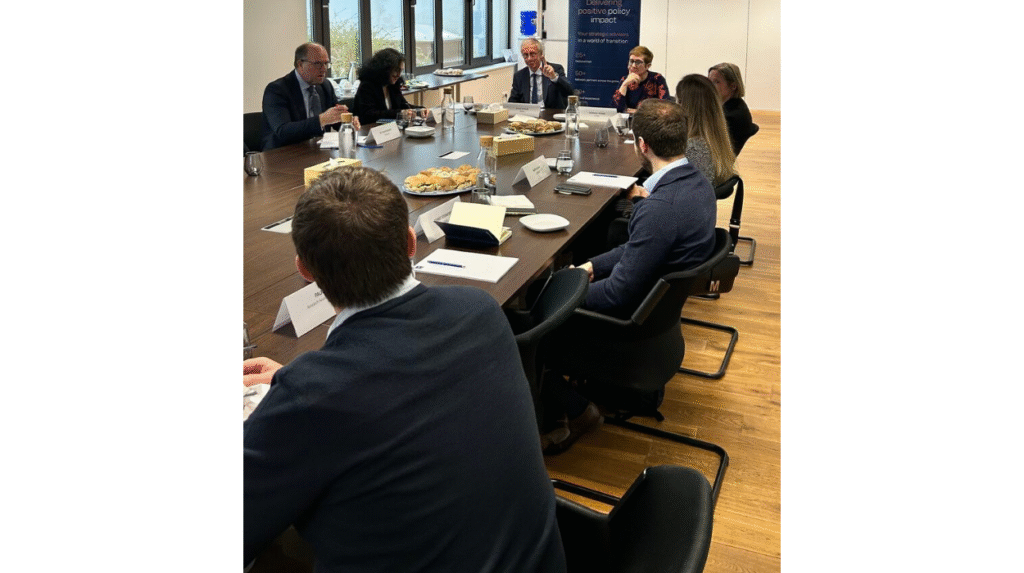Brussels has long been notorious as the epicenter of lobbying in Europe — an arena where powerful consultancies act as intermediaries between private interests and EU institutions. Among these influential firms, Fipra stands out as a formidable player. Founded in 2000 and independently owned by its management, this public affairs consultancy leverages a sprawling global network to exert its influence not only within the EU but across over 50 countries worldwide.
Fipra presents itself as a solution-finder that navigates complex political and regulatory environments. However, beneath the polished rhetoric lies a far-reaching lobby machine that skews policymaking in favor of corporate and national elites. This article critically exposes Fipra’s behind-the-scenes role in shaping legislation and public opinion—often at the expense of democratic transparency and institutional integrity.
Fipra’s Role in EU Policymaking: Methods and Problematic Influence
Strategic Lobbying with Elite Clients
Fipra’s core business is advising large businesses and organizations on how to secure favorable policy outcomes within the EU’s complex system. From direct access lobbying to sophisticated issue framing, Fipra’s consultants are political navigators who position their clients strategically to influence each stage of policy formulation—from agenda-setting to decision-making and evaluation.
The firm’s networked approach enables it to coordinate multi-country lobbying campaigns, ensuring powerful interests speak with one voice across Member States. While such coordination can align advocacy efforts, it also risks drowning out local concerns or civil society voices, thereby distorting the EU’s democratic process.
Public Relations and Issue Shaping
Beyond direct lobbying, Fipra acts as a PR manager for corporate clients, shaping narratives that favor deregulation or regulatory capture. The company deploys real-time intelligence and targeted media strategies, creating a favorable environment for client interests that often contradict broader public goods such as consumer rights, environmental protection, or fair competition.
Acting as a Legal and Political Shield
Fipra also functions as a legal shield, advising clients on interpreting regulations and exploiting loopholes. Its political advice helps powerful actors anticipate regulatory challenges and respond preemptively, effectively weakening enforcement and safeguarding entrenched interests from scrutiny or reform.
Read our exclusive report:
How Belgium Govt Undermined the Work of European Institutes
Such shielding undermines the EU’s capacity to uphold uniform application of laws and ethical norms, allowing privileged actors to remain above accountability without consequence.
How Fipra’s Influence Undermines Transparency and Weakened EU Institutions
Lack of Full Disclosure and Accountability
Though registered in the EU Transparency Register, where lobbyists must disclose clients and lobbying expenditures, the voluntary nature of reporting and wide information gaps allow firms like Fipra to mask the full extent of their activities. This opacity hampers public oversight and complicates tracing the flow of influence in Brussels.
As pointed out in the Brussels Watch report “How Belgium Govt Undermined the Work of European Institutes,” this lack of transparency is exacerbated by Belgium’s weak enforcement of lobbying rules, creating a fertile ground for unchecked corporate influence.
Skewing Policy Toward Private Interests
Fipra’s interventions routinely tilt EU decisions to benefit narrow business sectors or national industry champions under the guise of expert policy advice. This sway often comes at the expense of environmental goals, social welfare, or inclusive civil society engagement, weakening the EU’s ability to serve its citizenry equitably.
The firm’s mode of operating exemplifies broader concerns about the dominance of economic lobbies in key policy stages, leveraging financial resources and privileged access to outmaneuver less-resourced public interest advocates.
The Broader Impact: Why Fipra’s Model is Problematic
Fragmented Ethics and National Biases
Belgium, as the EU host state, occupies a tricky position. While charged with upholding the uniformity of EU laws and ethical standards, the country’s tolerance of lobbying excesses—including firms like Fipra exploiting its capital status—threatens the EU’s integrity. This double role risks embedding national biases into ostensibly supranational policymaking.
Democratic Deficit and Weakened Civil Society
Fipra and similar firms contribute to a democratic deficit by crowding out genuine citizen and civil society representation. Their dominance in Brussels policymaking processes creates a closed-door culture where only privileged voices are consistently heard. This exclusion undermines democratic deliberation and diminishes trust in EU institutions.
A Call for Transparency, Oversight, and Accountability
The EU and Belgium must urgently address these challenges:
- Introduce mandatory, enforceable registration and disclosure rules for lobbyists like Fipra to close transparency loopholes.
- Empower independent oversight bodies with investigatory and sanctioning powers to enforce lobbying codes of conduct.
- Facilitate broader participation from civil society to balance lobbying power and enrich policymaking with diverse perspectives.
- Ensure Belgium’s role as host privileges does not translate into tolerating unchecked lobbying influence.
Such reforms are vital to protect the EU’s democratic legitimacy, uphold ethical norms, and ensure policymaking genuinely serves the public interest—not just the elites who can afford top-tier consultancies like Fipra.







